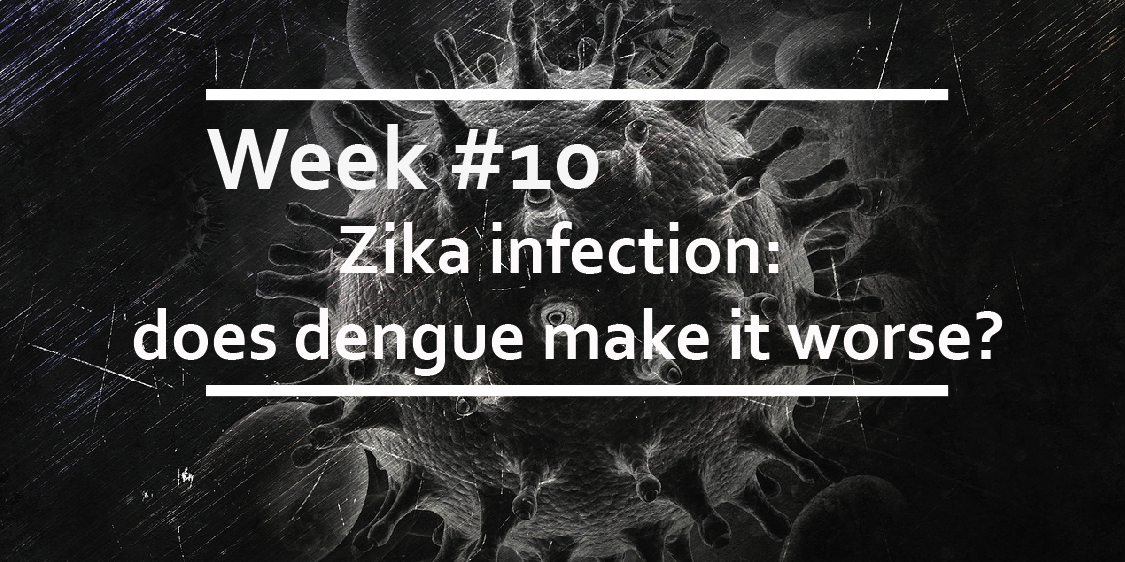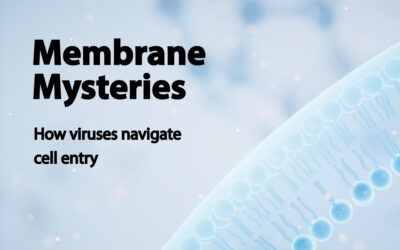Zika infection: does dengue make it worse?
This week we walk through an interesting Trends in Microbiology review by Sariol et al. that addresses recent investigations into the possibility of enhanced Zika virus pathogenesis when the infection follows a previous dengue infection.
Antibody-dependent enhancement (ADE)
Antibody-dependent enhancement (ADE) occurs when antibodies from a previous viral infection increase the infectivity of a subsequent infection. This phenomenon can arise when antibodies generated by the primary infection facilitate entry of the secondary virus into host cells, thereby increasing infectivity and exacerbating the clinical course of the disease.
ADE and dengue
ADE is relatively rare in vivo and is famously associated with the dengue virus. Initial infection with one dengue serotype (there are four known dengue serotypes) causes a mild flu-like disease that typically does not require hospitalization. This initial infection results in the production of neutralizing antibodies that confer long-lasting protection against the infecting serotype. However, these same antibodies might increase a person’s risk of developing ‘severe dengue’ when subsequently infected with any of the other three dengue serotypes. Recent evidence suggests that antibody titres are an equally important determinant of protection versus pathogenesis.
Dengue-induced Zika ADE?
Zika virus remained a relatively obscure disease for the first 60 years after its discovery but has attracted global attention following its 2015–16 epidemic. This recent rise of Zika, together with its unusual clinical manifestation (e.g., congenital Zika syndrome [CZS] and Gullian-Barre syndrome [GBS]), have led some to speculate about the possibility that a previous dengue infection might produce increased Zika pathogenesis, similar to the ADE phenomenon.
Some evidence from mouse studies
While enhancement of Zika infection in the presence of dengue antibodies can be seen in vitro and has been described in – mostly immune compromised – murine models, Sariol et al. point out that there is no epidemiological or clinical evidence for dengue-induced ADE with any other virus. Also, before Zika’s arrival in the Western hemisphere, it circulated continuously in flavivirus-endemic areas (e.g., Africa and Southeast Asia) with no notable increase in Zika pathogenesis in these locations.
Evidence from humans and non-human primates
Additional studies in non-human primates also seem to cast doubt on the dengue-Zika ADE. Pantoja et al. found no evidence of ADE of Zika in dengue-immune macaques; conversely, pre-exposure to dengue seem to generate a faster immune response against Zika, contributing to faster viral clearance and reduce pathogenesis. A similar trend has been observed in the human population, suggesting that pre-existing immunity against dengue might prime the immune response rather than enhance Zika infection.
Outlook
According to the studies in human and non-human primates, unarguably the best models of flavivirus infection, the evidence that Zika pathogenesis is enhanced by previous exposure to dengue looks slim. In vitro and mouse studies, although important to tease apart the molecular mechanisms of viral infection, have to be interpreted with caution when looking at flavivirus pathogenesis and, as the authors suggest, in vivo ADE is a relatively rare phenomenon.
This doesn’t mean that concerns over enhancing effect should be completely dismissed. A further study cited in this review suggests that the reverse be true, with prior exposure to Zika possibly enhancing dengue infection in non-human primates. The sobering take-home message is that not only do we lack answers to many of the questions that would help in the development of safe and effective flavivirus vaccines, but also our in vitro and in vivo models need to be interpreted with caution, with a new awareness of their applicability and limitations.




